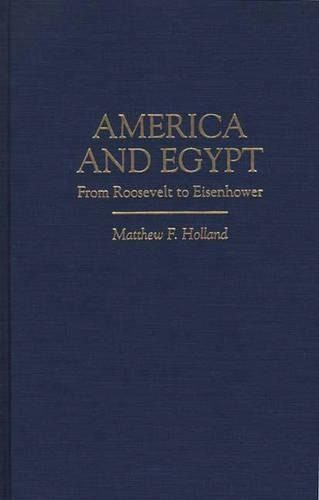
America and Egypt: From Roosevelt to Eisenhower
(Hardback)
Publishing Details
America and Egypt: From Roosevelt to Eisenhower
By (Author) Matthew F. Holland
Bloomsbury Publishing PLC
Praeger Publishers Inc
11th July 1996
United States
Classifications
Tertiary Education
Non Fiction
Petroleum, oil and gas industries
327.73062
Physical Properties
Hardback
224
Description
This book discusses the relations between the United States and Egypt from Roosevelt to Eisenhower. To protect the free flow of oil, American policymakers looked to Egypt to provide the progressive, pro-Western leadership they believed would insure stability to the region. America's attempts to balance the needs of its British allies with those of Egypt coupled with Egypt's quest for regional hegemony proved to be a recipe for trouble. In the end, America failed in grooming Egypt as the pro-Western leader, could not bring peace to the region, and could not prevent the Soviet Union from gaining a foothold. Yet, the oil continued to flow.
Reviews
Holland's book is important for its grasp of a perspective sorely lacking among Middle East/Arabist analysts in the post-WWII era. He recognizes the "self-interest (Arab firster)" preoccupation in the foreign policy behavior of the Arab states (for which Egypt is used as a focal point). This behavior resulted in contradictory Arab behavior and manipulation directed against both East and West.-Choice
"Holland's book is important for its grasp of a perspective sorely lacking among Middle East/Arabist analysts in the post-WWII era. He recognizes the "self-interest (Arab firster)" preoccupation in the foreign policy behavior of the Arab states (for which Egypt is used as a focal point). This behavior resulted in contradictory Arab behavior and manipulation directed against both East and West."-Choice
Author Bio
MATTHEW F. HOLLAND is Assistant Professor of History and Chair of the History Department at Kansas Wesleyan University.
